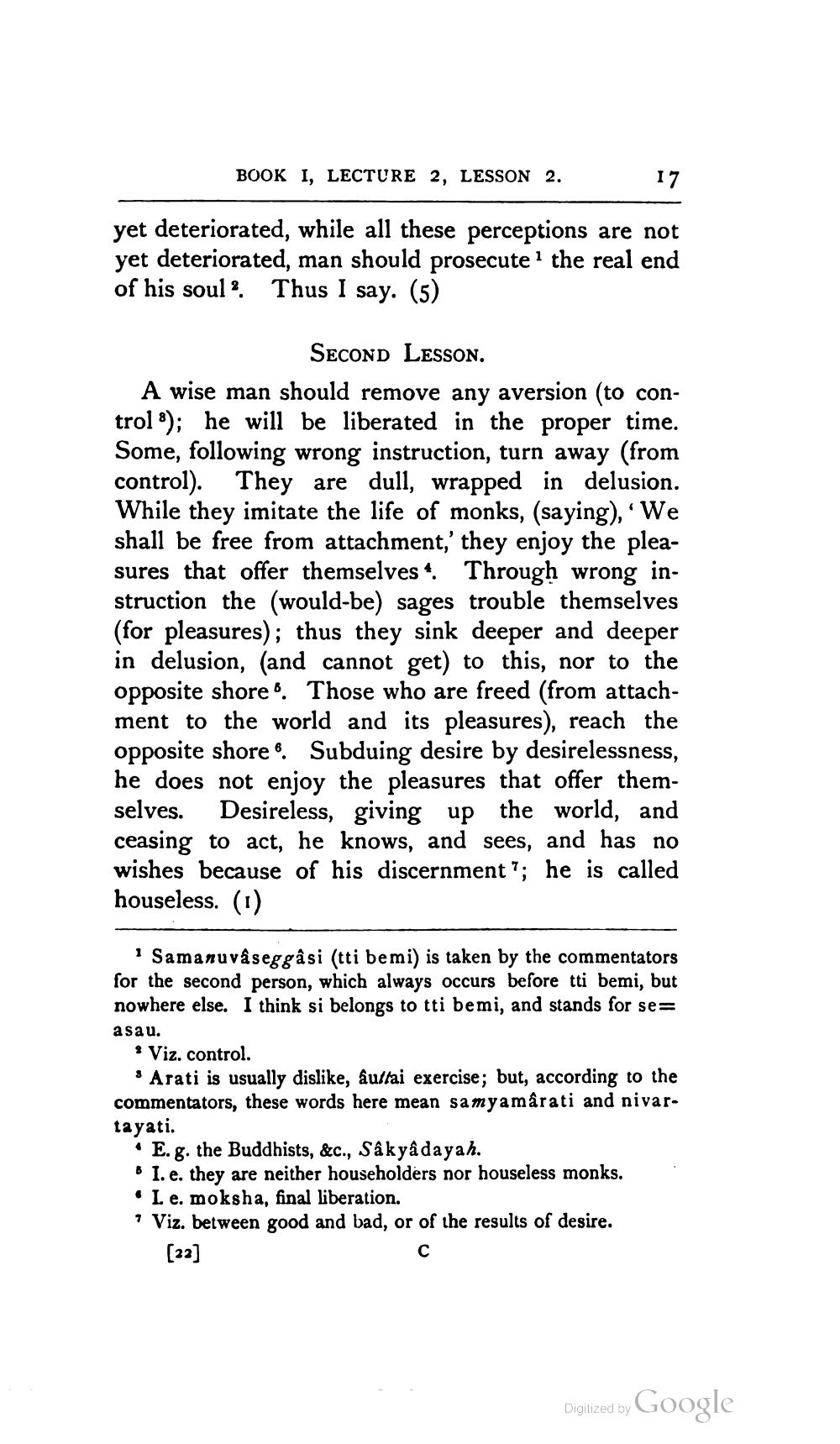________________
BOOK I, LECTURE 2, LESSON 2.
17
yet deteriorated, while all these perceptions are not yet deteriorated, man should prosecute the real end of his soul? Thus I say. (5)
Second Lesson. A wise man should remove any aversion (to control "); he will be liberated in the proper time. Some, following wrong instruction, turn away (from control). They are dull, wrapped in delusion. While they imitate the life of monks, (saying), We shall be free from attachment,' they enjoy the pleasures that offer themselves. Through wrong instruction the (would-be) sages trouble themselves (for pleasures); thus they sink deeper and deeper in delusion, (and cannot get) to this, nor to the opposite shore 6. Those who are freed (from attachment to the world and its pleasures), reach the opposite shore & Subduing desire by desirelessness, he does not enjoy the pleasures that offer themselves. Desireless, giving up the world, and ceasing to act, he knows, and sees, and has no wishes because of his discernment ?; he is called houseless. (1)
Samanuvâseggâsi (tti bemi) is taken by the commentators for the second person, which always occurs before tti bemi, but nowhere else. I think si belongs to tti bemi, and stands for se= asau.
Viz. control. * Arati is usually dislike, auttai exercise; but, according to the commentators, these words here mean samya mârati and nivartayati.
• E. g. the Buddhists, &c., Sâkyâdayah. * I. e. they are neither householders nor houseless monks. • L e. moksha, final liberation. ? Viz. between good and bad, or of the results of desire.
[22]
Digitized by Google




